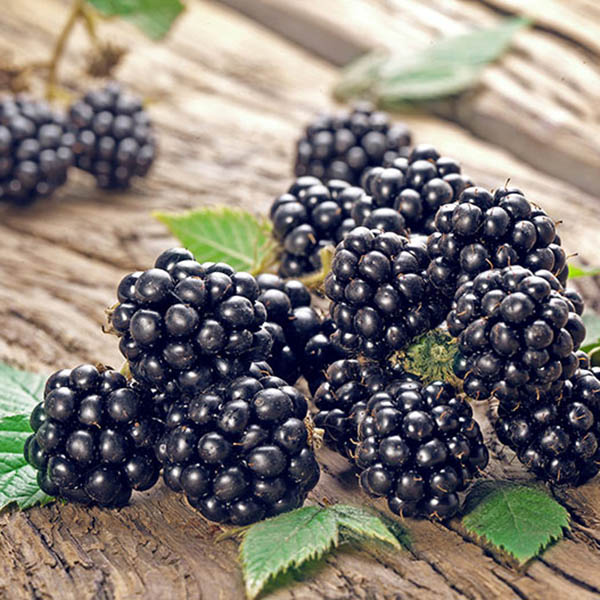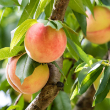You're shopping: DAVIDSONVILLE
(change store)
Fruit Trees and Fruit Shrubs - BLACKBERRY 'CHESTER' 2G

BLACKBERRY 'CHESTER' 2G
no reviews for this product. Login to place a review.
Your Price $42.99
Item Number 284018
In store quantity:
9
Blackberry 'Chester'
2-Gallon
Height: 4-6 feet tall.
Spread: 4-6 feet.
Sunlight: Full sun.
Hardiness Zone: 5a.
Other Names: Rubus fruticosus 'Chester'
Description:
A thornless, late-season blackberry variety known for its high yields, large fruit, and excellent cold hardiness. 'Chester' produces sweet, firm, and juicy blackberries that resist cracking and hold well on the plant. Its vigorous, semi-erect canes make it an easy-to-maintain option for home gardens and edible landscapes.
Edible Qualities:
Blackberry 'Chester' is valued for its plump, sweet berries with a rich, juicy flavor. The fruit is excellent for fresh eating and preserves its quality well for freezing and processing.
The fruit is most often used in the following ways:
- Fresh Eating
- Baking
- Jams & Preserves
- Smoothies
- Freezing
Features & Attributes:
Blackberry 'Chester' features dark green foliage throughout the growing season, followed by clusters of white blossoms in spring that attract pollinators. Its large, deep black berries ripen in late summer to early fall, extending the harvest season.
This is a deciduous shrub with a semi-erect growth habit. It is thornless, making harvesting easy and painless, and highly resistant to common diseases, including cane blight.
Aside from its primary use as an edible, Blackberry 'Chester' is suitable for the following landscape applications:
- Edible Hedges
- Home Gardens
- Trellised or Fenced Growing
Planting & Growing:
Blackberry 'Chester' will grow to be about 4-6 feet tall at maturity, with a spread of 4-6 feet. It has a low canopy with a typical clearance of 1-2 feet from the ground. It grows at a fast rate and, under ideal conditions, can be expected to live for 10-15 years.
This shrub thrives in full sun and well-drained soil. It requires consistent moisture, particularly during fruit development, and benefits from an annual layer of mulch to retain soil moisture and regulate temperature. Pruning old canes after fruiting encourages new growth and maximizes productivity.
Additional Characteristics:
- Late-Season Ripening
- Thornless Canes
- High-Yielding
- Cold Hardy
- Disease Resistant
Recently Viewed Products
PEACH 'VETERAN' 15G
$189.99

